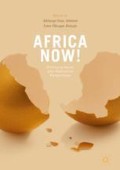Abstract
Taking the case of informal cross-border traders from Southern Africa in Johannesburg, human mobility is discussed as one of four productive factors that are key to regional integration. Employing three levels of analysis—regional, national and local—discussion is confined to economically active persons. Key Southern African Development Community (SADC) instruments relating to human mobility are also discussed. Existing and corresponding national and local legislation, by-laws, policies and practices are investigated to highlight the extent to which SADC members implement regional instruments. Using in-depth interviews with informal cross-border traders in Johannesburg from SADC countries, the findings show the absence of supportive legal-institutional regulatory regimes to promote the activities of immigrant traders. This demonstrates that an important element in the SADC integration project is unwelcome or ignored.
Access this chapter
Tax calculation will be finalised at checkout
Purchases are for personal use only
Notes
- 1.
As a means, regional integration provides opportunities for member states of a regional bloc, for example, to meet the objective of expanding markets for domestically produced goods and thus contribute to development.
- 2.
The eight RECs include the Community of Sahel-Saharan States (CEN-SAD), the Common Market for Eastern and Southern Africa (COMESA), the East African Community (EAC), Economic Community of Central African States (ECCAS), the Economic Community of West African States (ECOWAS), the Intergovernmental Authority for Development (IGAD), SADC, the Union du Maghreb Arabe (UMA). See http://www.au.int/en/recs/. [Accessed 26 November 2012].
- 3.
Angola, Botswana, the DRC, Lesotho, Madagascar, Malawi, Mauritius, Mozambique, Namibia, Seychelles, South Africa , Swaziland, Tanzania, Zambia and Zimbabwe.
- 4.
The Tripartite Free Trade Area, dubbed the COMESA-EAC-SADC FTA, is an initiative of the Common Market for Eastern and Southern Africa (COMESA), East African Community (EAC) and SADC that seeks to integrate and establish an FTA of the three regional organisations and 26 member states of the three RECs on 10 June 2015.
References
African Union (AU). (2006a). The migration policy framework for Africa. Executive Council, Ninth Ordinary Session, Banjul, The Gambia, June, 25–29.
African Union (AU). (2006b). African common position on migration and development. Executive Council, Ninth Ordinary Session, Banjul, The Gambia, June, 25–29.
Balassa, B. (1961). The theory of economic integration. Homewood, IL: Richard D. Irwin.
Creswell, J. H. (2009). Research design: Qualitative, quantitative and mixed method approaches. Singapore: Sage.
Crush, J., Campbell, E., Green, T., Nangulah, S., & Simelane, H. (2006). States of vulnerability: The future brain drain to South Africa. Migration Policy Series, No 42. Cape Town: IDASA.
Entrekin, J. N., & Tepple, J. H. (2006). Humanism and democratic place making. In S. Aitken & G. Valentine (Eds.), Approaches to human geography (pp. 30–41). London: Sage.
European Commission. (2012a). The EU single market: General policy framework. Retrieved December 24, 2012, from http://ec.europa.eu/internal_market/top_layer/index_en.htm
European Commission. (2012b). Employment, social affairs and inclusion: Enlargement…transitional provisions. Retrieved December 10, 2012, from http://ec.europa.eu/social/main.jsp?catId=466&langId=en
Gauteng Provincial Administration. (2012). Informal trading by-laws, 2009. Provincial Gazette, 14 March 2012. Retrieved September 2, 2013, from http://www.joburg.org.za/images/stories/2012/Sept/local_government_-_municipal_systems_act_32-2000_-_city_of_johannesburg_-_informal_trading_by-laws_final%20%20by%20laws%203.pdf
Landau, L., & Gindrey, V. (2008). Migration and population trends in Gauteng Province 1996–2055. Migration Studies Working Paper Series # 42. Forced Migration Studies Programme, University of Witwatersrand. Retrieved March 4, 2011, from http://www.migration.org.za/research-outputs/working papers
Mail & Guardian. (2013, November 15–21). We are not looting the continent, we’re cultivating peace and trade, pp. 12–13.
Nita, S. (forthcoming). Regional free movement of people: The case of African Regional Economic Communities. In Regions and cohesion: Special edition. UNESCO-UNU Chair on Regional Integration, Migration and Free Movement of People.
Nshimbi, C. C. (2005). Is regionalization in Southern Africa the appropriate strategic response to globalization? In A. Ahmed (Ed.), World sustainable development outlook 2005, global competitiveness: A common goal in a digital society. Bradford: Emerald Group Publishing Limited.
Nshimbi, C. C. (2013). State of denial. OpenDemocracy. Retrieved December 2, 2013, from http://www.opendemocracy.net/chris-nshimbi/state-of-denial
Nshimbi, C. C., & Fioramonti, L. (2013). A region without borders? Policy frameworks for regional labour migration towards South Africa. Johannesburg: African Centre for Migration and Society, University of the Witwatersrand.
Nshimbi, C. C., & Fioramonti, L. (2014). The will to integrate: South Africa’s responses to regional migration from the SADC region. African Development Review, 26(S1), 52–63.
Nyamnjoh, F. B. (2006). Insiders and outsiders: Citizenship and xenophobia in contemporary South Africa. Dakar; London; New York: CODESIRA and Zed Books.
Segatti, A. (2006). Reforming South African immigration policy in post-apartheid period (1990–2006): What it means and what it takes. In Migration in post-apartheid South Africa: Challenges and questions to policy makers (pp. 33–79). Paris: FASOPO.
Southern Africa Trust (SAT). (2009). Retrieved August 31, 2013, from http://www.southernafricatrust.org/docs/Informal_Cross_Border_Traders_Association_launched_20090716.pdf
Southern Africa Trust (SAT). (2013). Regional cross border Trade Stakeholder Dialogue, Maputo, Mozambique, April 23–24, 2013. Retrieved August 31, 2013, from http://www.southernafricatrust.org/docs/regional_cross_border_trade_stakeholder_dialogue_20130716.pdf:27
Southern African Development Community. (1992). Treaty of the Southern African Development Community. Gaborone, Botswana: SADC.
Southern African Development Community. (2005). Protocols on facilitation and movement of persons. Gaborone, Botswana: SADC.
Southern African Research and Documentation Centre (SARDC). (2008). Optimising regional integration in Southern Africa: Assessing informal cross border trade in SADC. Final Report.
Teddlie, C., & Tashakkori, A. (2009). Foundations of mixed methods research: Integrating quantitative and qualitative approaches in the social and behavioural sciences. Los Angeles; London; New Delhi; Singapore; Washington, DC: Sage.
The Star. (2011, May 3). Law will strangle growth in South Africa, p. 10.
Author information
Authors and Affiliations
Editor information
Editors and Affiliations
Rights and permissions
Copyright information
© 2018 The Author(s)
About this chapter
Cite this chapter
Nshimbi, C.C., Moyo, I. (2018). Informal Immigrant Traders in Johannesburg: The Scorned Cornerstone in the Southern African Development Community Integration Project. In: Adeniran, A., Ikuteyijo, L. (eds) Africa Now! . Palgrave Macmillan, Cham. https://doi.org/10.1007/978-3-319-62443-3_17
Download citation
DOI: https://doi.org/10.1007/978-3-319-62443-3_17
Published:
Publisher Name: Palgrave Macmillan, Cham
Print ISBN: 978-3-319-62442-6
Online ISBN: 978-3-319-62443-3
eBook Packages: Social SciencesSocial Sciences (R0)

